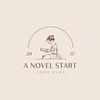Take a photo of a barcode or cover
237 reviews for:
Nicolau e Alexandra: O relato clássico da queda da dinastia Romanov
Robert K. Massie, Angela Lobo de Andrade
237 reviews for:
Nicolau e Alexandra: O relato clássico da queda da dinastia Romanov
Robert K. Massie, Angela Lobo de Andrade
Picked up this historical saga (first published in 1967) for a book club meeting I wasn't able to make. But it was well worth it, because this is one of the most beautifully written and interesting books of history I've ever read and decades after reading it I was happy to read it again. And since I see the author has written other biographies of historical Russian figures, I will be adding those to my to-read list.
adventurous
dark
emotional
informative
mysterious
sad
tense
medium-paced
This is a story that's fascinated and also horrified me since I was a child. I hate the thought of a country turning of the anointed Monarch(s), it's against nature; royal blood and all that. So, although I've researched this topic online in the past I thought I'd read about it too. Luckily, this book is a lot more detailed than what I found online a few years back, and with me being older I also understand a lot better than before.
Between a government who wanted more power, and a pair of Monarchs who believed in autocratic rule; I think it was a plan for disaster either way. Nicholas kept ignoring what troubled his people, his wife Alexandra kept listening to Rasputin because he had the ability to heal her sickly son, and Nicholas was too tender to take away what little hope his wife had.
I do understand how the people could do it. Nicholas didn't bring in any extra food when his people were starving, he still used the trains to organise his troops on the front line. There was bound to be a rebellion but I don't think he planned on his own troops siding with the commoners.
The book is very descriptive about the circumstances leading to the family's house arrest; it isn't just any one thing, but a series of circumstances and attitudes that lead to it. The more I understood, the less I felt that they were fit to rule solely because they were the rightful monarchs of Russia.
Killing them (I don't think) was meant to happen. I think it was the plan of the few which horrified the many, a plan meant to secure the new ruling government. It's a very sad story, one I find I have little words for. I was happy to find that the author does explain what happened to some of the other members of the Russian royal family after the reigning family's death. I just find it a pity that the survivors of the family (such as Nicholas's mother) had to endure the endless years of strangers saying they had "found" a survivor from the massacre. They should have been allowed to live the rest of their lives in peace, but there will always be shallow, money-grabbing idiots with no sympathy out there.
So yes, this book has changed my point of view on the topic (for the better I hope). I've always been set dead against what happened - "who has the right to kill a reigning sovereign?!", but after reading about their rule, lack of interest, ignorance, and refusal to accept help... I think it probably did Russia a favour.
Happy reading!
If you would like to read more of my reviews, please visit: http://a-novel-start.blogspot.com
Between a government who wanted more power, and a pair of Monarchs who believed in autocratic rule; I think it was a plan for disaster either way. Nicholas kept ignoring what troubled his people, his wife Alexandra kept listening to Rasputin because he had the ability to heal her sickly son, and Nicholas was too tender to take away what little hope his wife had.
I do understand how the people could do it. Nicholas didn't bring in any extra food when his people were starving, he still used the trains to organise his troops on the front line. There was bound to be a rebellion but I don't think he planned on his own troops siding with the commoners.
The book is very descriptive about the circumstances leading to the family's house arrest; it isn't just any one thing, but a series of circumstances and attitudes that lead to it. The more I understood, the less I felt that they were fit to rule solely because they were the rightful monarchs of Russia.
Killing them (I don't think) was meant to happen. I think it was the plan of the few which horrified the many, a plan meant to secure the new ruling government. It's a very sad story, one I find I have little words for. I was happy to find that the author does explain what happened to some of the other members of the Russian royal family after the reigning family's death. I just find it a pity that the survivors of the family (such as Nicholas's mother) had to endure the endless years of strangers saying they had "found" a survivor from the massacre. They should have been allowed to live the rest of their lives in peace, but there will always be shallow, money-grabbing idiots with no sympathy out there.
So yes, this book has changed my point of view on the topic (for the better I hope). I've always been set dead against what happened - "who has the right to kill a reigning sovereign?!", but after reading about their rule, lack of interest, ignorance, and refusal to accept help... I think it probably did Russia a favour.
Happy reading!
If you would like to read more of my reviews, please visit: http://a-novel-start.blogspot.com
challenging
emotional
informative
mysterious
sad
tense
slow-paced
This is the first biography I've ever actually read. And it was awesome because it read like a novel. Anyone who shies away from nonfiction for fear it will read like a textbook... this opus is for you.
Besides, the downfall of the Romanovs is just about the most fascinating thing that's ever happened... ever, in my humble opinion.
Besides, the downfall of the Romanovs is just about the most fascinating thing that's ever happened... ever, in my humble opinion.
informative
slow-paced
overall extremely informative and beautifully written. dug into the personal lives of the romanovs in a way i've never seen it done before -- with compassion and nearly endless sympathy, particularly for nicholas. where it falls short for me is in its extreme anti-communist bias and the excuses the author tends to make for the royal family, whether or not those excuses are wholly deserved. broadly speaking, i loved this, but had to temper how much i wholly believed the author's assertions.
dark
emotional
informative
sad
medium-paced
informative
reflective
slow-paced







